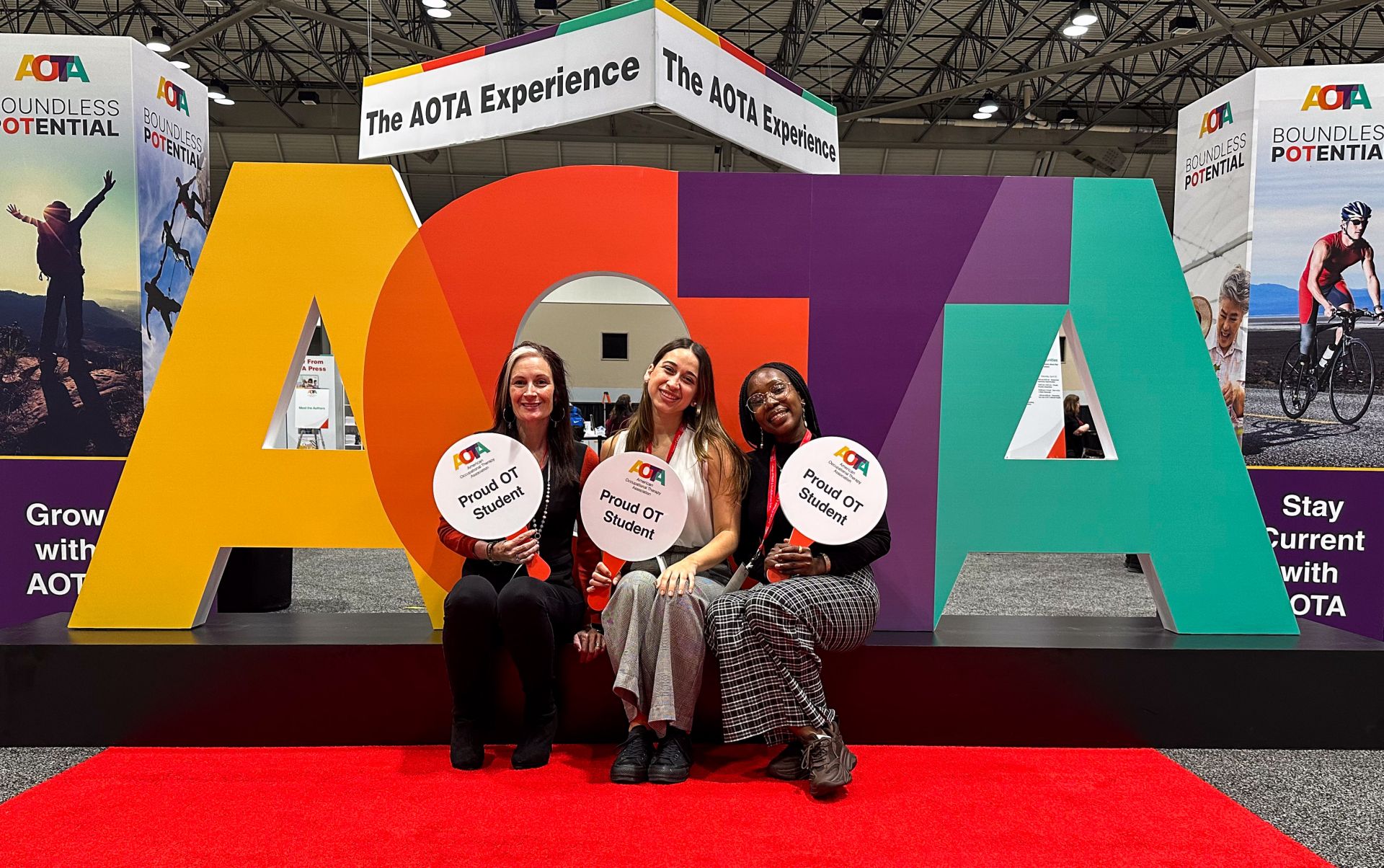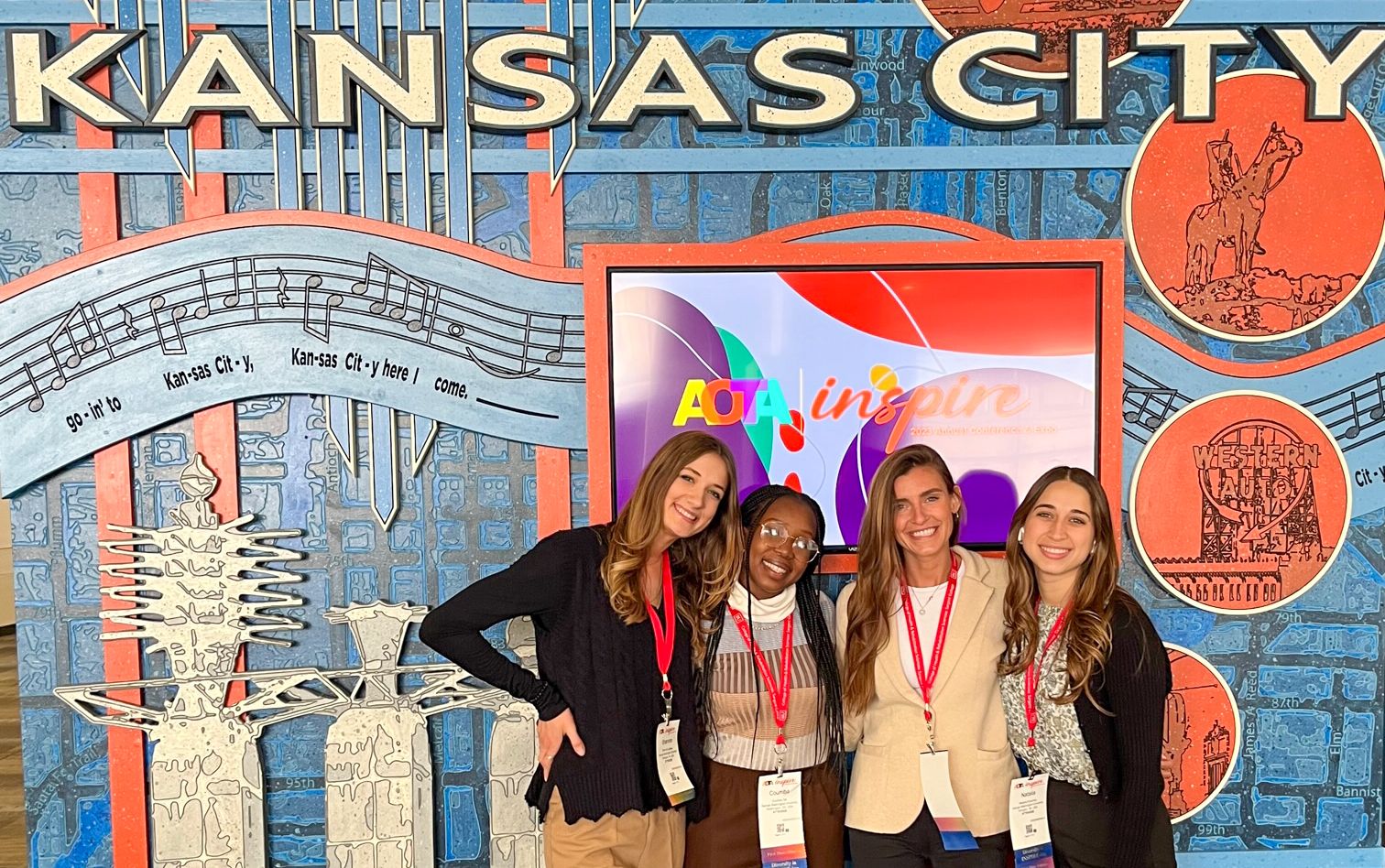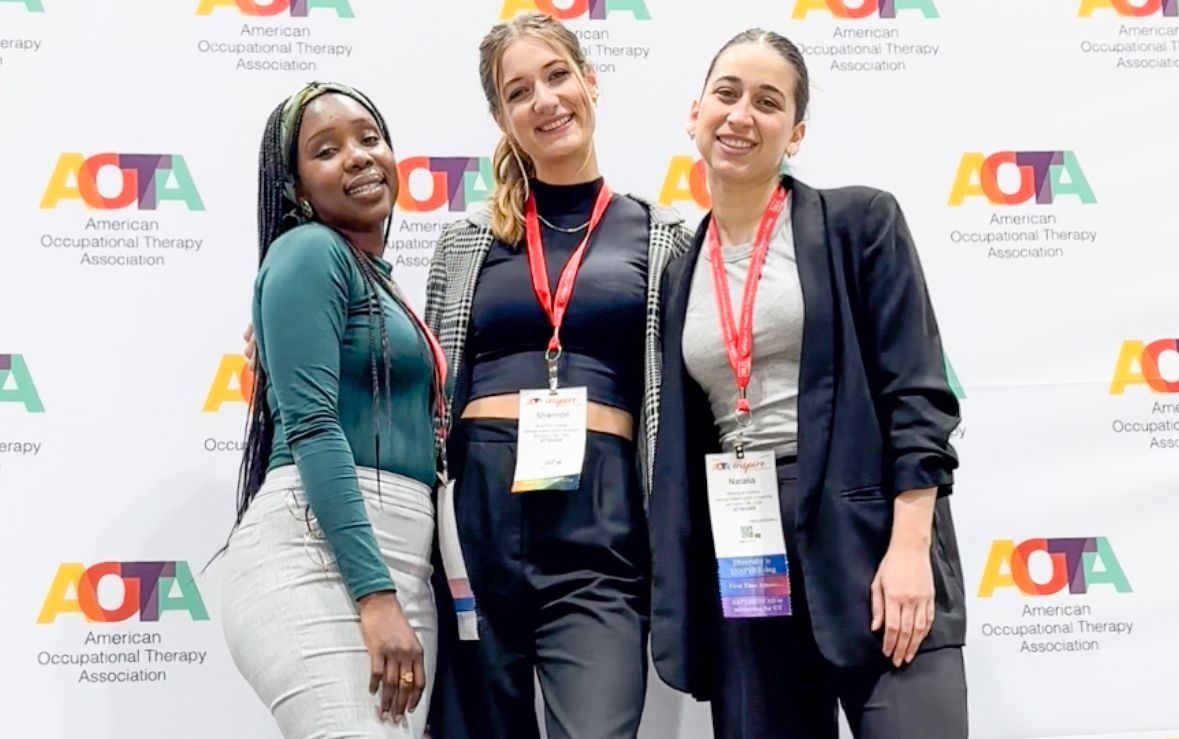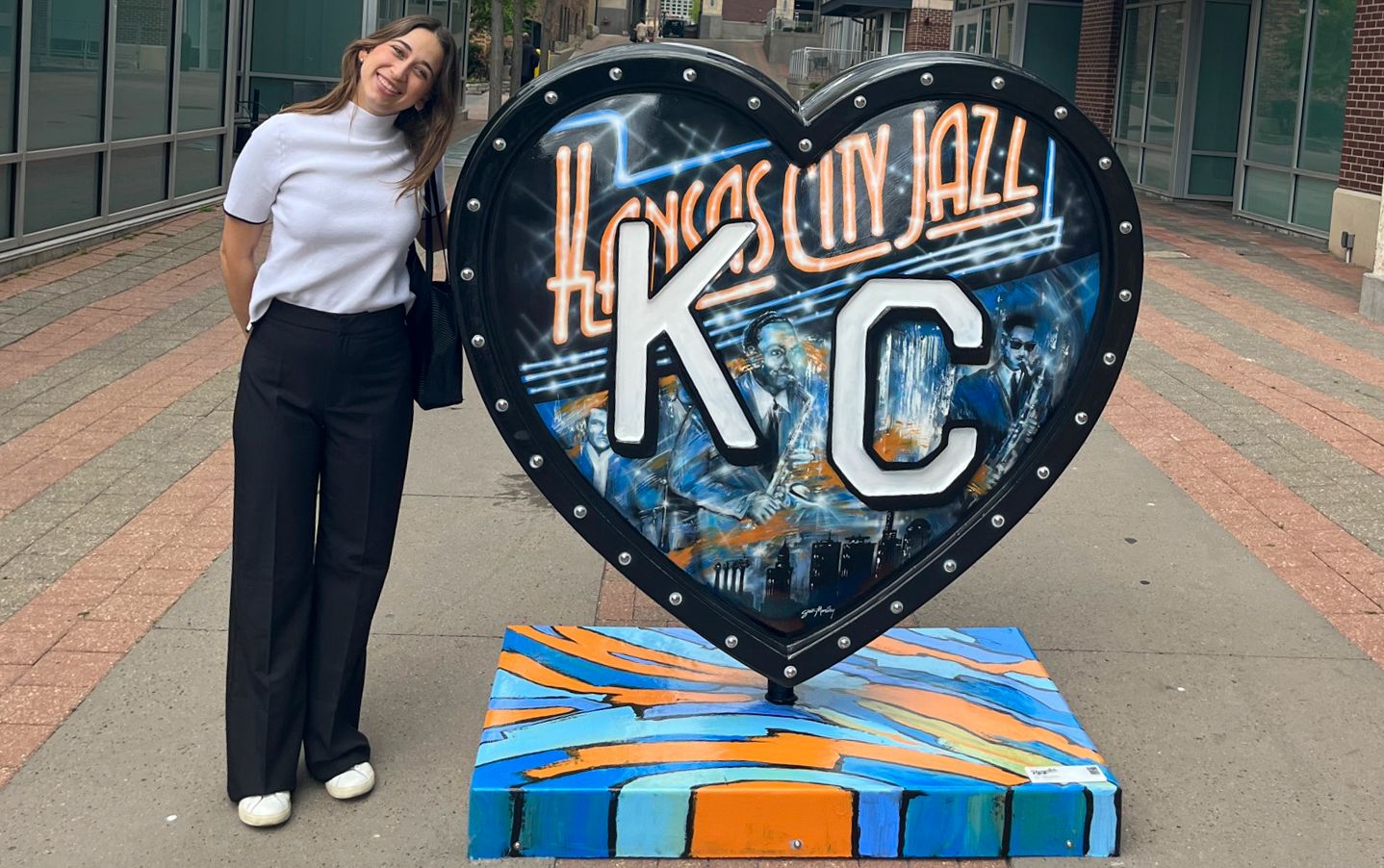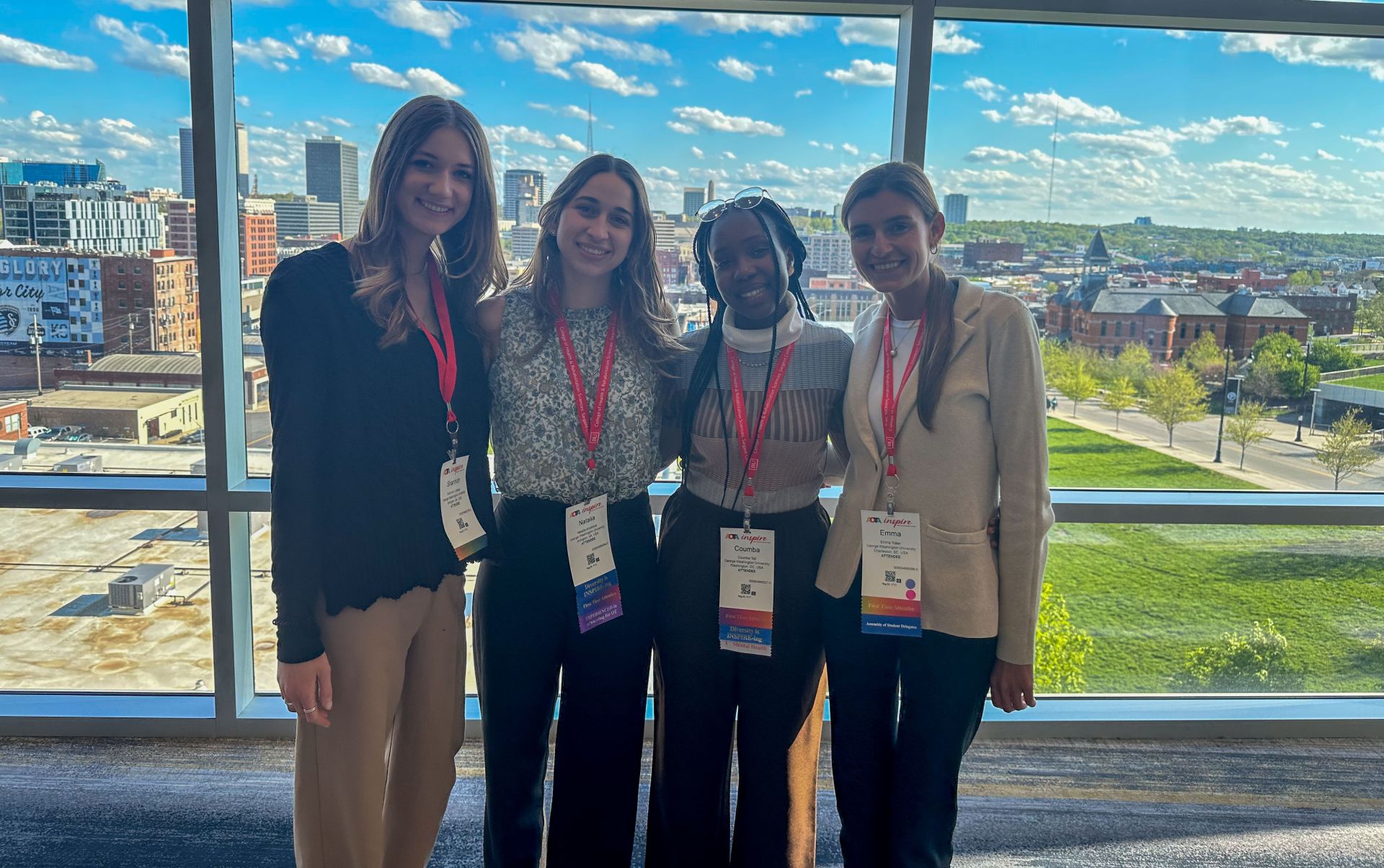The American Occupational Therapy Association (AOTA) Inspire 2024 Annual Conference & Expo takes place in Orlando, Florida, from March 21-23. Ten students and six faculty from the Department of Health, Human Function, and Rehabilitation Sciences will be in attendance. While last year’s event in Kansas City, Missouri from April 20-23 expanded networks and sparked new ways of thinking, attendees were driven to reflect on the progression of the field of occupational therapy. Discussions around lacking diversity, use of offensive language, and explicit racial bias arose throughout the conference due to public discussions. Students and faculty weighed on the moral and ethical implications faced when considering attending the AOTA 2024 conference.
Second-year student Amy Arrellano explained:
"The AOTA conference being held in Florida this year has been a topic of discussion amongst many members of the occupational therapy community as several laws have been passed in the state that target minoritized groups. There was even an attempt to petition for AOTA to move the conference to another state but that was not successful. Various individuals have expressed concerns for the safety of those who the laws target, as well. Many have decided to not attend this year while others have expressed that attending the conference is important as occupational therapists to advocate and show solidarity to those who practice in Florida."
Assistant professor, Kellie Sawyer, OTD, OTR/L, stated:
“There is a significant shift occurring in the U.S. OT community. I believe that it is important to establish meaningful relationships in spaces where we can influence the direction of the profession moving forward. Attending an AOTA conference in a location where minoritized voices are being stifled is not an optimal circumstance. However, one of the primary reasons I chose to attend this year was to provide visible support to colleagues in Florida who not only work to create a more equitable and inclusive profession but also aim to reduce the risk of harm to clients in vulnerable positions."
Danielle Centi, DrOT, OTR/L, CBIS, assistant professor and academic fieldwork coordinator explained her stance as:
“As a long time AOTA volunteer and current member of the diversity, equity, inclusion, justice, access, and belonging in OT (DEIJAB) committee, I find myself attending to not only fulfill those roles, but continue to learn and network. I acknowledge the concerns that many OT practitioners in our community had about attending and fully respect their choices to maintain their safety. Recognizing that I have been afforded certain privileges, such as safety, due to my identities, I felt it was important to show up and advocate for those who could not. I think it is important for us to have a strong presence in Orlando, FL and let the OT profession be known, heard, and allies to the marginalized population we serve and work with.”
How the GW OT Program Responded to the 2023 AOTA Conference
All faculty members of the GW occupational therapy program and five students attended and contributed to the reflection and discussion. The GW OT program responded to the experiences in the following ways. May this action plan serve as a guide for our program to move forward with accountability:
- A survey was sent to current students to capture and share direct experiences, observations, and takeaways.
- Goal: To inspire prompt reflective thinking that is less emotionally charged
- Goal: To inspire prompt reflective thinking that is less emotionally charged
- A community conversation around equity and inclusion, in response to the AOTA Conference experiences, was held on Wednesday, May 3, 2023 when students were on-campus. Conference attendees shared their experiences and takeaways from the conference.
- Goal: To share the positive future outlook for the profession, acknowledge events that happened, and emphasize the importance of diversity in healthcare.
- Goal: To share the positive future outlook for the profession, acknowledge events that happened, and emphasize the importance of diversity in healthcare.
- Small groups were formed, led by faculty and staff, to reflect on experiences in our daily lives and brainstorm action items for 45 minutes. Ideas were brought back and shared with the larger group.
- Goal: To create a productive, brave space for students to feel empowered to speak on uncomfortable topics, feel a sense of belonging, and think creatively about how to promote diversity within OT, eliminate racism, eliminate ableism, eliminate othering of people and other identities, and reduce health and social disparities.
- Goal: To create a productive, brave space for students to feel empowered to speak on uncomfortable topics, feel a sense of belonging, and think creatively about how to promote diversity within OT, eliminate racism, eliminate ableism, eliminate othering of people and other identities, and reduce health and social disparities.
- A committee consisting of faculty, staff, and students was then formed to initiate objectives prompted by the group discussions and to track progress.
- Goal: To ensure and track progress on initiatives developed by the GW OTD community, to better implement space regarding diversity, equity and inclusion
Community-Developed Action Items
As groups discussed efforts to lead positive changes surrounding diversity, equity, and inclusion, common themes included education, outreach, and building a brave space for discussion. The GW OT program and its new Inclusion and Equity committee have taken action on the following items and will continue to monitor and track progress to ensure that each student understands the meaning of inclusion and equity while considering new ways to foster change.
Education
- The program must analyze occupational therapy's history and the impact of the profession's historical and current predominance of white women.
- The program must teach about culture in ways demonstrating how people can feel excluded but also to teach in ways that elevate individual and collective identities as contributing to humankind.
- The program must create a webpage to define key terms and topics for students, staff, and faculty to reference, share, disseminate, reflect, and dialogue to embrace diverse and anti-racist perspectives.
Build a Brave Space
- The program must hold more informal conversations that encourage students, staff, and faculty to understand themselves, their identities, their biases, and their opportunities to be allies and advocates in the community.
- The program must come to terms with engaging in dialogue that is often considered intimidating and combative.
- The program must come to terms with the defensiveness that may come with being "called out."
Encouraging Action
- The program must encourage each other to enact change by increasing accountability of others when using insensitive language and to being an ally of others' internal conflicts.
- Using clinical education opportunities through fieldwork experiences and capstone projects to foster DEIJAB and brave spaces with community partners.
Outreach and Advocacy
- The program must build relationships and networks with other organizations within the university, the community, and profession to increase communication and collaboration on addressing health and social disparities.
- The program will participate in AOTA's Capitol Hill Day, an advocacy event to advocate and lobby elected officials in Congress on the issues of concern for occupational therapy and the people and communities we serve.
- The program will participate in advocacy and allyship at the local, state, and federal levels.
The Values of the GW Occupational Therapy Program
The GW OT program aims to prepare graduates to advocate for the profession and ensure occupational justice and inclusive engagement in society.
We envision a future where diversity exists within the field of occupational therapy, where practitioners empower people and foster diverse communities by addressing their unmet occupational needs.
We believe that people deserve to be held accountable for the language that they use and should learn and understand the effect it has on one another. The words spoken by former leadership at the AOTA Conference are not reflective of all occupational therapists’ views and we support the bravery of those speaking out. We will continue to ask ourselves and each other, what else needs to be done, and how can occupational therapists help today and in the future.
Current Efforts of the GW Occupational Therapy Program
GW OT maintains a diverse makeup of faculty with diverse perspectives and backgrounds who teach an innovative curriculum embedded with topics of positionality, language, bias, systems and advocacy throughout the program.
While in a hybrid education format, to accommodate diverse life commitments, students gain unique opportunities in the nation’s capital to collaborate with local, national, and global communities.
Service learning is incorporated into the curriculum to challenge student's sense of service and duty as a professional. All students are required to incorporate occupational justice and equity principles into their doctoral capstone projects.
Learn more about Occupational Justice.
